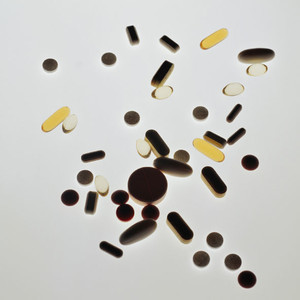Analysis of generics approvals by the US Food and Drug Administration (FDA) reveals a slight increase in the total number of applications approved between 2016 and 2018. Over 1,800 applications were approved in this time, however, there was no significant change to the proportion of these drugs in shortage or with limited competition [1].
The US drug market is notorious for its pricing, with brand-name drug manufacturers often charging prices for their products higher than elsewhere in the world [2]. Generics, copies of chemical drugs which can be produced once the patent on the reference product has expired, have the potential to reduce costs and increase access to treatments.
However, there are issues in the generics market too, including insufficient competition and shortages of certain (often older) drugs [3].
Beginning in 2017, FDA has taken a number of actions to combat these problems, including introducing the Drug Competition Action Plan to encourage competition in the generics market [4]. Actions as part of the plan include making the drug development and approval process more efficient for generics and closing legal loopholes that allow brand-name drug manufacturers to delay the marketing of generics.
The agency has also implemented parts of the Generic Drug User Fee Amendments (GDUFA), which was re-authorized in August 2017 and allows FDA to change fees for industry in order to increase ‘predictability and timeliness’ in the review of generics applications.
These initiatives together aim to promote competition among generics and accelerate the application review process, however, whether they have been effective in doing so is so far unknown.
A recently published research letter [1] assessed the impact of these initiatives by characterizing recent generics approvals in the US, paying particular attention to drugs that faced limited competition or had been in shortage.
The researchers did so using the Drugs@FDA database, a publicly-available database containing information on drug products approved by FDA, which is updated daily. The researchers identified all approved generics applications, formally known as abbreviated new drug applications (ANDAs), in the period between 1 July 2016 and 31 December 2018.
For each ANDA, they also assessed competition for the drug and prior shortages of the product, as well as various other information such as the year of approval for the brand-name product, essential medicine status and therapeutic area.
They found that 1,832 ANDAs were approved by FDA between 2016 and 2018, for a total of 533 different active ingredients. The majority (23%) were neurologic agents, followed by agents for cardiovascular (14%) and infectious (12.5%) disease.
Although the total number of generics approvals increased in this time, the authors found no significant change to the proportion of approvals for drugs that faced limited competition or had previously been in shortage.
As a result of their findings, the authors suggest that FDA initiatives to increase approvals for at-risk generics have not yet had a noticeable impact. However, it is important to note the limitations of the study, including the fact that the authors did not assess whether approvals actually led to a drug coming to market and their definition of limited generics competition (which followed FDA policy, rather than the definition used by other studies of a product having three or fewer existing manufacturers).
Conflict of interest statement
Various conflict of interest disclosures were made in this paper, including one author serving on the advisory board of the Joint Commission of Pharmacy Practitioners and receiving travel support from various organizations, including the American College of Clinical Pharmacy and the Association of American Medical Colleges. The University of Utah also has a contract to provide drug shortage information to healthcare performance company Vizient. The full disclosure can be found in the article [1].
Editor’s comment
Readers interested to learn more about the US generic drug market are invited to visit www.gabi-journal.net to view the following manuscripts published in GaBI Journal:
Promoting a competitive generics market in the US
Barriers to generics policy reform: a US case study
Readers interested in contributing a research or perspective paper to GaBI Journal – an independent, peer reviewed academic journal – please send us your submission here.
Related articles
FDA approves first EpiPen generic amid shortages
Hospitals to start own generics company
References
1. Jiao K, Gupta R, Fox E, et al. Characteristics of recent generic drug approvals by the US Food and Drug Administration. JAMA Network Open. 2019;2(10):e1913029. doi:10.1001/jamanetworkopen.2019.13029.
2. GaBI Online - Generics and Biosimilars Initiative. Why do generic drug prices keep on rising? [www.gabionline.net]. Mol, Belgium: Pro Pharma Communications International; [cited 2019 Nov 29]. Available from: www.gabionline.net/Generics/General/Why-do-generic-drug-prices-keep-on-rising?
3. GaBI Online - Generics and Biosimilars Initiative. Generic injectable prices stay high even after shortages resolved [www.gabionline.net]. Mol, Belgium: Pro Pharma Communications International; [cited 2019 Nov 29]. Available from: www.gabionline.net/Pharma-News/Generic-injectable-prices-stay-high-even-after-shortages-resolved
4. GaBI Online - Generics and Biosimilars Initiative. FDA lists drugs without generics to increase competition [www.gabionline.net]. Mol, Belgium: Pro Pharma Communications International; [cited 2019 Nov 29]. Available from: www.gabionline.net/Generics/General/FDA-lists-drugs-without-generics-to-increase-competition
Permission granted to reproduce for personal and non-commercial use only. All other reproduction, copy or reprinting of all or part of any ‘Content’ found on this website is strictly prohibited without the prior consent of the publisher. Contact the publisher to obtain permission before redistributing.
Copyright – Unless otherwise stated all contents of this website are © 2019 Pro Pharma Communications International. All Rights Reserved.
?








 0
0











Post your comment